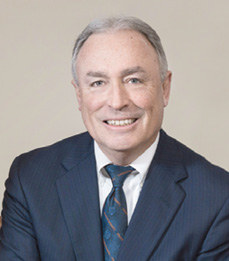When her doctor recommended heart valve replacement, 66-year-old Southern Tier resident Kimberly Quick was anxious, but she didn’t hesitate to follow up with a cardiac surgeon.The operation was a success, and in February of this year she encouraged other women to take charge of their heart health and seek treatment if something doesn’t seem right.

John Carrigg, CEO
Ms. Quick is the latest in a long list of women who have survived heart conditions and been selected to speak at UHS’ annual “Wear Red Day,” which calls attention to women’s heart health issues. She advised her listeners at UHS Vestal — women and men — to take heart symptoms seriously and act on them quickly. “Sometimes you really don’t know your true condition,” she said. “By following through, I learned how much danger I was in before surgery. Now, following surgery, I’ve been able to do better than I ever expected.”Most of us are very familiar with the good advice of medical experts: Eat a balanced diet, exercise appropriately for your age and condition, maintain a healthy weight, get a handle on stress and don’t smoke. And, as with Ms. Quick and other survivors who have been part of the “Wear Red” Heart Month program, staying alert to the signs and symptoms of heart attack or other problems can be the difference between life and death.
But while it’s important to take charge of your heart health, you should also know that you’re not in this alone. UHS is ready to be your guide and resource. Over the years, we’ve pioneered a number of advances in heart care in our region, introducing angioplasty, open-heart surgery and cardiac rehabilitation. We’ve created trauma, stroke and chest pain centers at UHS Wilson Medical Center, and launched Stay Healthy at the Oakdale Mall, where you can learn about fitness, nutrition and smoking cessation.
Perhaps most significantly, in 2014 we integrated all of our cardiac services under one banner, the UHS Heart & Vascular Institute, based at UHS Wilson. The institute is designed to advance the quality and effectiveness of cardiac services, improve the patient experience and coordinate your care every step of the way.
So we hope you’ll always think of us as your partner in accessing the best possible options, ensuring that lifesaving care is available whenever needed. We’re privileged to be able to treat heart conditions like the one Ms. Quick was born with, while also helping everyone address those forms of heart disease that are preventable. It’s our mission, our goal and our commitment, because, for you and all of our patients, our hearts are really in it.
John M. Carrigg
President and CEO of UHS


